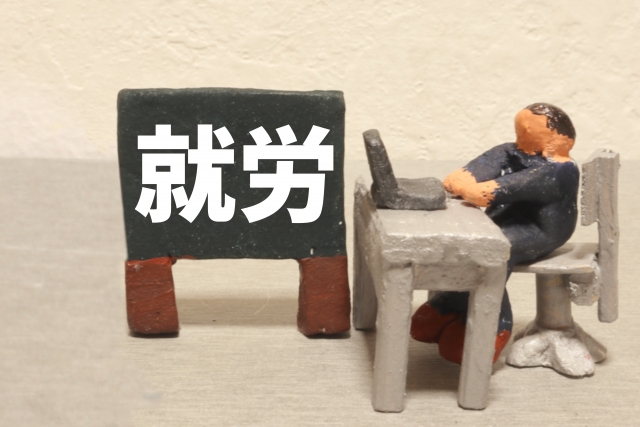I’m Takashi Akeyama, a representative of the Niseko VISA & Immigration Support Centre. As the only administrative office in Hokkaido specializing in VISA & Immigration and tourism, we help foreigners living in Hokkaido, mainly in Niseko, Otaru and Sapporo areas, to apply new or extend VISA, to change the status, such as working visas and spouse visas etc…. In this article, Can foreigners work? or, Can foreigners be employed? based on the 29 types of status of residence established by the Japanese government.
Foreigners are now working in many places, such as convenience stores and izakaya hall staff. So, many of you are thinking there is no reason why foreigners cannot work in Japan. Of course, there is no legal problem for foreigners to work in Japan or for companies to hire foreign employees. However, this does not mean that anyone can work for any company or do any job, just like a Japanese person. Foreign nationals in Japan must have one of the 29 statuses of residence (visa) as defined by law. According to the status of residence, there are those who are allowed to work, those who are not allowed to work at all, and those who are allowed to work only with permission. Some are allowed to work without any restrictions, such as no restrictions on job types or working hours, or the freedom to change jobs, just like Japanese people, while others have a fixed weekly working hours, a specific type of work that they are not allowed to do, or are not allowed to change jobs. All of these things are determined in detail in the “status of residence” that each foreigner has. For this reason, companies wishing to hire foreigners, or foreigners wishing to work in Japan, are required to first understand exactly which status of residence they are qualified for and what kind of work they can do under that status of residence, and to strictly follow the restrictions and regulations.
- Status of Residence that allows foreigners to work like a Japanese person without restrictions on employment.
- Status of residence with a defined job description
- A status of residence that allows limited work if permission is obtained.
- Status of residence that allows or disallows work depending on the person.
- In conclusion
Status of Residence that allows foreigners to work like a Japanese person without restrictions on employment.
First, the following four statuses of residence are possible to work.
①Permanent residence(永住者) = Foreign nationals who are permitted to live in Japan permanently.
②Long Term resident (定住者)
③Spouse or Child of Japanese National = A foreign spouse married to a Japanese national and children born to the spouse.
④Spouse or Child of Permanent Resident = Spouse of a foreign national married to a permanent resident and a child born in Japan
These are the four statuses of residence. These statuses of residence can be obtained based on the status and relationship of the foreigner, such as marriage or birth. However, when a person loses the relationship that forms the basis for these statuses, the status ceases to exist. In the most common case, if a person with a status of residence such as spouse of a Japanese national gets divorced, he/she will not be able to continue to live in Japan unless he/she changes to another status of residence. Please note that depending on the newly acquired status of residence, you may no longer be able to do the work you have continued to do, or you may be subject to work restrictions.
Status of residence with a defined job description
These are the 19 types of so-called work-related status of residence. The following are some of the most common ones,
1)Engineer / Specialist in Humanities / International Services=「技術・人文知識・国際業務」
2)Skills=「技能」
3)Management=「経営・管理」
4)Professor=「教授」
5)Education=「教育」
6)Intra company Transfer=「企業内転勤」
7)Nursing Care=「介護」
There are 12 other types. Each of these types of work is defined in detail in terms of what kind of work you can do and in what kind of companies (workplaces) you can work at. For example, if you are an English teacher, your status of residence is “Education” if you teach at a high school, ” Engineer / Specialist in Humanities / International Services ” if you teach at an English conversation school, and “Professor” if you teach at a university. Even if the job description is similar, the status of residence may differ depending on the type of company you work for. Of course, a chef with “Skills” status of residence cannot work as an IT engineer, and in such a case, the status of residence must be changed to “” Engineer / Specialist in Humanities / International Services “. If a foreigner does work outside of the duties prescribed by his/her status of residence, it will be considered a violation of activities outside of the status of residence, or so-called illegal employment, and the foreigner himself/herself may be subject to deportation or the company may be charged with encouraging illegal employment. When hiring a new foreign employee, check the status of residence on his/her resident card. Then, it is effective as a means of avoiding illegal employment to apply for the issuance of a “Certificate of Eligibility for Employment” =就労資格証明書、and carefully check whether the planned work is within the coverage of the status of residence of the foreigner you intend to hire.
A status of residence that allows limited work if permission is obtained.
Although this status of residence is not basically for the purpose of working, by obtaining “permission to engage in activities other than those permitted under the status of residence”=資格外活動許可 from the Immigration, it is possible to work part-time for up to 28 hours per week. The status of residence that allows this is,
1)Student:留学
2)Deoendent(=Family Stay):家族滞在
When working with permission, in addition to the time limit of 28 hours per week, there are also rules regarding the work that you may not do and the workplaces in which you may not work. These are jobs related to so-called “adult entertainment businesses,” such as cabarets, nightclubs, and other places where customers are entertained and served food and drink, or where sexual services are provided, even if the hours are 28 hours or less per week.There have been unfortunate cases in which foreign students working in such places have been inspected by the Immigration Office and found guilty, so you need to be very careful when choosing a part-time job. In some cases, overwork of 28 hours or more per week may not be discovered while the student is still in school. However, after graduation, when a student gets a job and tries to obtain another status of residence, or when a student gets married and tries to obtain a status of residence such as spouse of Japanese national, his/her past status of residence will be investigated in detail and subject to screening. However, when a student seeks employment after graduation and tries to obtain another status of residence, or when a student marries and tries to obtain a status of residence such as spouse of a Japanese national, his/her past status of residence will be investigated in detail and subject to screening, and if overwork is discovered at that time, the change from a college student visa will be disapproved in some cases. It would be a waste of time and money if you are forced to return to your home country because you cannot obtain a work visa when you have acquired Japanese language skills and specialized knowledge and are trying to find a job. To avoid such a situation, you should keep in mind that it is very important to respect the 28-hour-per-week time limit in order to consider your future career.
Status of residence that allows or disallows work depending on the person.
This category corresponds to the status of residence “Specified Activities”=特定活動. Since this Specified activity includes a broad range of multiple activities, the detailed activity description is written on the “Designation Form”=指定書 attached to the passport. You can work within the units described in this form, including the name of the company, job description, and work restrictions.
In conclusion
There are 29 types of status of residence, and in particular, work-related status of residence stipulates in detail the duties that can be performed within that status of residence. In order to avoid illegal employment, it is necessary not only to carefully check the status of residence of a foreign employee before making a job offer, but also to verify regularly after hiring to be sure that the job description is within the range of the status of residence.
The Niseko VISA & Immigration Support Centre help and support foreign nationals who are trying to overcome language, cultural and custom barriers and live as a member of Japanese society. If you have any questions or enquiries about this article, or getting working visa, please feel free to contact us by phone or via the ‘Free Consultation Form‘ on our website.




